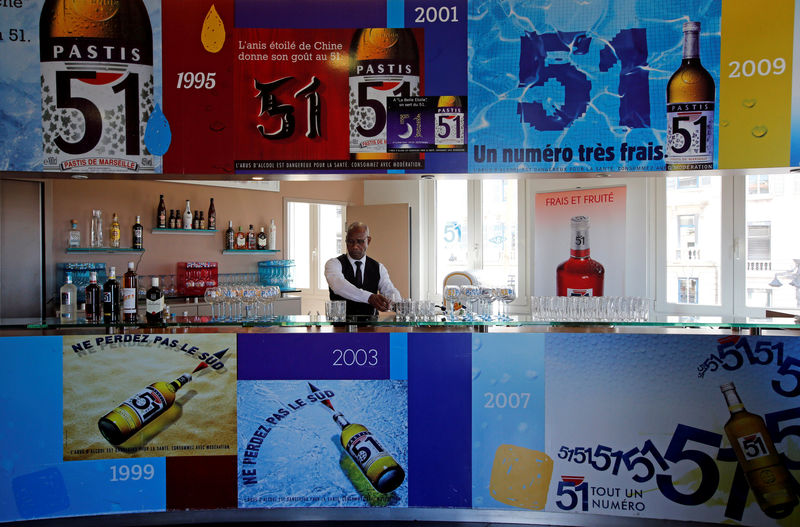By Colin Packham
SYDNEY (Reuters) - Wine shipments from Pernod Ricard's (PA:PERP) Australian business have been held up at Chinese ports, two sources told Reuters, the first foreign company to be harmed by a deterioration in relations between Australia and China.
Six Australian wine companies have faced delays at Chinese customs since Prime Minister Turnbull complained of Chinese political interference late last year, straining ties, a senior government official said this month.
The listed French company Pernod Ricard owns the big-selling Australian wine brand Jacob's Creek.
"Pernod Ricard through its ownership of Jacob's Creek has been impacted by China's restrictions," said a government source briefed on the issue, who declined to be identified as he is not authorised to talk to the media.
Pernod Ricard's head office in France declined to comment, while a spokeswoman for Pernod Ricard declined to answer specific questions, referring Reuters to the industry organisation Wine Australia. It declined to comment.
In recent months, Treasury Wine Estates Ltd (AX:TWE) and McWilliams Wines disclosed they were experiencing problems at Chinese customs.
They and Pernod Ricard joined several other companies for an emergency meeting with government officials last week, a government source said, to urge the government to break the impasse with China over trade restrictions.
China's customs have not responded to faxes requesting comment on the Australian complaints of delays.
Pernod Ricard, which manufactures and sells various alcoholic drinks including Absolut Vodka and Martell cognac, does not publish sales records of Jacob's Creek wines to China.
But this month, it said China accounted for about 9 percent of its global sales of 9 billion euros ($10.57 billion).
The Chinese delays have cast a shadow over an otherwise golden period for Australian wine exports, which are forecast to be worth more than A$1 billion in 2018, government figures show, compared with A$848 million (480.7 million pounds) last year.
Australia has accused China of meddling in its domestic affairs and is introducing foreign interference laws that have strained relations between the two trading partners.

China has denied any such activity.